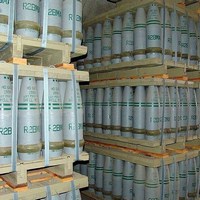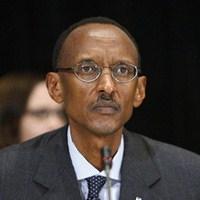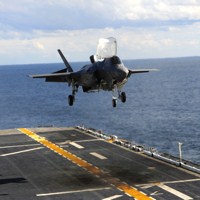Recent changes in Japan’s security policies have been interpreted by the media as representing a scrapping of the country’s pacifist restrictions, leading it toward becoming a “normal” nation and acquiring a more assertive military. These changes include permitting the right to exercise collective self-defense, creating a National Security Council, relaxing a ban on exporting defense-related equipment and procuring new military assets. The changes are significant, but they do not represent a fundamental shift. Instead, they represent a pragmatic evolution in response to Japan’s increasingly dangerous neighborhood. Consider first Prime Minister Shinzo Abe’s effort to reinterpret Japan’s constitution. At issue is […]
Military Archive
Free Newsletter

In late-August and early September, when the Obama administration was still seeking to generate support for the use of force against Syria after Damascus had crossed the “red line” of large-scale use of chemical weapons, one of the arguments it used was that failure to do so would undermine the credibility of America’s threat to strike Iran if Tehran ever built nuclear weapons. That argument may have been true at the time, but the situation has become more complex since the U.S. and Russia reached an agreement to disarm Syria’s chemical weapons peacefully. By explicitly stating, partly for domestic reasons […]

When the M23, a Rwanda-backed militia, launched a rebellion last year in eastern Democratic Republic of Congo (DRC), few could have guessed the fallout it would cause in Kigali. For years, credible reports had documented a host of Rwanda-sponsored abuses in the region, from civilian massacres to the plundering of minerals. Yet Rwanda’s Western backers, wary of undermining a country considered a major development success, generally looked the other way. But when a series of U.N. Group of Experts reports found evidence of systematic Rwandan support for the rebels, including the provision of weapons and troops, and direct Rwandan command […]

During his current visit to South Korea, U.S. Defense Secretary Chuck Hagel will likely discuss long-standing issues on the alliance agenda, including the timing of the transfer of wartime operational control from U.S. to South Korean forces as well as plans for sharing the costs of defending South Korea in coming years. But Hagel’s visit might well be dominated by Seoul’s abrupt decision last week to annul its tender to purchase 60 advanced fighter planes and launch a new one. Boeing’s F-15 Silent Eagle—an upgraded version of the F-15E, the dominant model in the South Korean Air Force—looked set to […]
